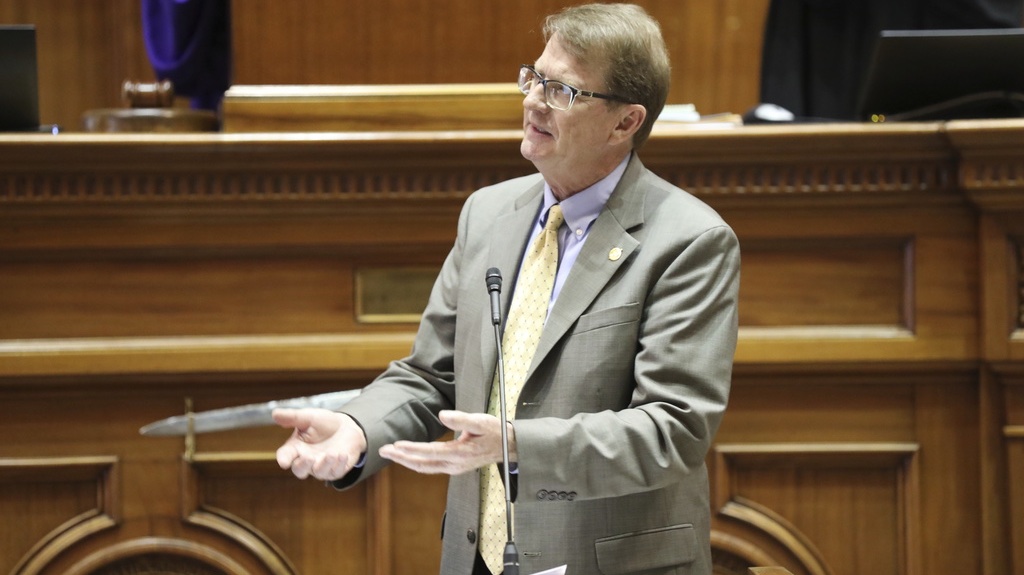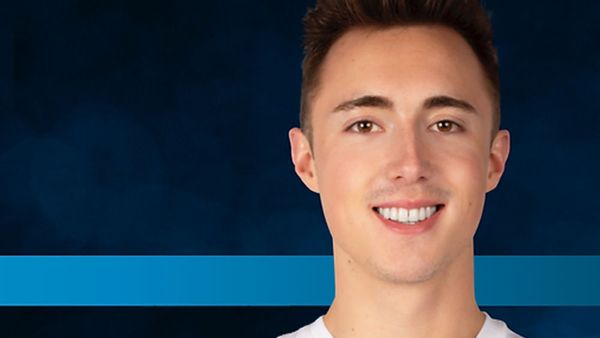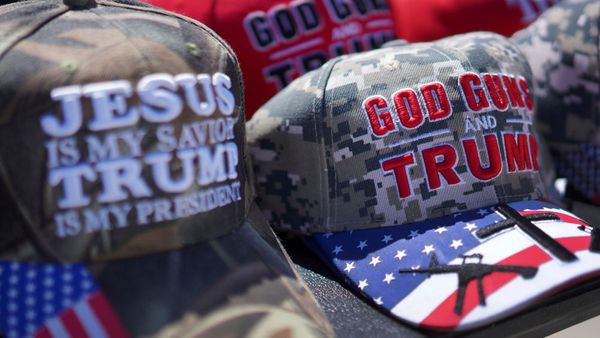October 25, 2012
Why Have Female Pro Athletes Come Out, While Male Ones Lag Behind?
Jason St. Amand READ TIME: 11 MIN.
We've all been witnessing one of the most remarkable sea changes in the history of sports as members of the National Football League, individual athletes, team owners an the back offices have been falling over themselves in support of gay rights, specifically marriage equality.
Several straight NFL players have not been loudly voicing their support for marriage equality, they've been encouraging closeted players to come out. They say they would happy and proud have a gay teammate -- or opponent.
The most vocal and articulate NFL supporter of gay rights has to be 30-year-old Minnesota Vikings punter Chris Kluwe. But despite his and others' efforts, no pro athlete in the NFL, the National Basketball League, Major League Baseball or the National Hockey League has yet to come out during his career.
In recent days, it should be noted, there has been one U.S. male major pro sports star who has come out successfully. Featherweight boxer Orlando Cruz came out came out just a few days ago . The cheers from an adoring throng of admirers as he won his first bout after that dramatic announcement when he trounced Jurge Pazos in Orlando showed that, even in the most macho of all pro sports, fans would not only not jeer an out-athlete, but that they would rally to him.
Two Female Tennis Pioneers
Male athletes in the pro teams may not yet brave the high glare of publicity that would come with precedent-shattering self-outing. But professional female sports stars have been coming out for years.
In 1981, after a nasty palimony suit with another women effectively outed her, Billie Jean King became the first prominent professional female athlete to announce that she was gay. Around the same time, fellow tennis star Martina Navratilova publically came out.
But her announcements were, if not detrimental to her career, certainly to her pocketbook. Navratilova has said that she believed she lost about $10 million in endorsements because corporate executives in the '80s didn't want anything to do with her during the AIDS epidemic.
More Recent Female Out Athletes
More recently, in 2005, Women's National Basketball Association superstar Sheryl Swoopes, popularly known as the "female Michael Jordan," announced that she was a lesbian, which made her the highest-profile U.S. pro team athlete to come out of the closet.
Swoopes signed an endorsement deal for Olivia cruises, a travel company catering to lesbians. Navratilova herself had previously served as an Olivia spokeswoman, as did professional golfer Rosie Jones, who came out to the public in 2004 after she also signed a deal with the travel agency.
"It doesn't change who I am," Swoopes said when she came out. "I can't help who I fall in love with. No one can. Discovering I'm gay just sort of happened much later in life. Being intimate with [my partner] or any other woman never entered my mind. At the same time, I'm a firm believer that when you fall in love with somebody, you can't control that."
Minnesota Lynx star and Olympic athlete Seimone Augustus actually gained endorsement deals after she officially came out. ESPN reported that she signed a deal with Nike soon after she came out in May.
Homophobia in Men’s Sports
Still, the world of pro sports remains one of the most difficult work environments in which to come out comfortably. The specter of homophobia still hovers over much of the sports world.
In September, the Associated Press reported that Yunel Escobar, the Toronto Blue Jays starting shortstop, was suspended for three games for wearing eye-black displaying an anti-gay slur in Spanish, one of several such incidents of athletes' trash talk.
It was newsworthy enough back in 2007 for AP to report that former retired NBA player John Amaechi became the first openly gay male athlete to sign an endorsement deal with a mainstream company. The out-and-proud gay man and baldie, who came out in a memoir that topped the New York Times Best Seller list, signed a deal with HeadBlade Inc., the creators of a popular head-shaving razor.
Why Sports Is So Significant
"More people are interested in male sports figures than female athletes," said Cyd Zeigler, Jr., the co-founder of OutSports.com, the website that has both chronicled, and been instrumental in, athletes coming out as gay and lesbian. He sees homophobia in sports as a result of a culture that is "putting an overwhelming value on masculinity. At some point, masculinity came to be defined as 'has sex with women.'
"If you don't have sex with women," Zeigler added, "you are gay or feminine. If you do have sex with women, they you are masculine. In the 1900s, our culture became obsessed with sports and it defined part of us. Together, this created an idea that you have to be masculine in sports or you are considered gay. Homosexuality is the antithesis of masculinity."
Sports has been one of the major sites for "defining, affirming, and proving masculinity in American culture," said Susan Cahn, a history professor at the State University of New York at Buffalo, told EDGE. "Dominant masculinity is defined as heterosexual. Therefore, any sexuality or gender performance, or stereotypes about gender and sexuality, that threaten normative masculinity, especially among male athletes, is threatening."
Sports is the one place where men are allowed to be intimate and "physically affectionate with each other," she added. If the element of gay athletes is introduced, straight sports players "have responded by guarding their territory and rejecting anything that could 'queer' this important cultural space."
Female Athletes Assumed Lesbian
Ironically, female athletes are often assumed to be lesbian because they are athletic.
"This prejudicial assumption in women's sports creates a hostile environment for athletes perceived as lesbian, who might be shunned for 'perpetuating' or 'validating' the stereotype that women athletes are masculine or gay,'" Hudson Taylor, founder and head of Athlete Ally, an LGBT sports group, and division I wrestling coach for Columbia University, wrote in the Huffington Post.
The WNBA and the LPGA in particular have been dogged for years about rumors that lesbians make up from 10 percent to as much as 50 percent of their rosters. The responses of the two organizations is indicative of the collective schizophrenia that still infects much of women's professional sports.
The pro golf association's leaders have taken pains to emphasize that their organization is not a Sapphic sorority. They distance themselves as much as possible from the "Dinah," the one big international women's Circuit party, which takes in Palm Springs during the Kraft Nabisco Championship, one of the Big Four events on the LPGA tour. Originally the Dinah Shore, the lesbian series of dances built up around the event.
The basketball league, on the other hand, has openly embraced its huge coterie of lesbian fans. The league sponsors lesbian nights for most teams and supports lesbian fan clubs.
Women Athletes Battle Homophobia
In order to compensate for lesbian stereotyping, women athletes often use sexist or homophobic language.
"I learned that brutal lesson the moment I heard a well-respected female strength coach tell one of my teammates to 'take his tampon out' when she felt he wasn't lifting sufficient weight," Taylor wrote.
Homophobia remains a huge problem in women's sports. Cahn, the author of "Coming on Strong: Gender in Sexuality in 20th Century Women Sport," believes it is the biggest factor working against full acceptance of women athletes.
"The belief that sports is inherently masculine has meant historically that women athletes are also seen as masculine women," she said. "Because lesbianism has been understood as a masculine expression and identity, sports becomes suspect by association as a lesbian pursuit."
Some straight women resent lesbians because they contribute to a negative stereotype of athletic women, Zeigler noted. Despite homophobia being a major issue in women's sports, female athletes who do come out have an easier time of it than they male colleagues, according to Cahn.
"Since women athletes are already under sexual suspicion, to come out may not seem like such a huge step, at least for some athletes who feel like they've already broken with cultural norms and feel confident about themselves," she told EDGE. "But because it confirms damaging stereotypes and cultural beliefs and images about women athletes, there is great pressure not to come out for fear of confirming those very beliefs."
When a female athlete announces that she's gay, most people and fans are not surprised. "When a female basketball player comes out, people say, 'big shocker,'" Zeigler said.
Prejudice on Women’s College Teams
As cultural views shift, Cahn believes it has become easier for female and male athletes to come out. "As people in general become less homophobic and know more gay, lesbian, queer people, they are more likely to accept LGB, not T, athletes," she said.
"But," she added, "it still puts any 'star power' or endorsement money at great risk. It seems to be getting easier at the college level where there maybe a more tolerant climate than in high schools and in pro sports."
That may be true, but there are still plenty of incidences of overt homophobia in women's collegiate sports.
In one of the most prominent examples of homophobia in women's sports, Rene Portland, who coached women's basketball at Pennsylvania State University, was accused of discriminating against gay female players during her 27-year tenure. In 1986, Portland told the Chicago Sun-Times that she refused to allow lesbians on her team.
"I will not have it in my program. I bring it up, and the kids are so relieved, and the parents are so relieved," she said. Despite her anti-gay views, Portland retained her position because she kept winning. (Penn State's funny that way.)
The Penn State women's program burst into controversy in 2005, when Jen Harris, a player for the Lions basketball team, sued the university. She claimed Portland booted her off the team because of her perceived sexual identity. The suit brought unwanted media attention to the school; two years later, Portland resigned.
In 2010, homophobia in women's collegiate sports again national headlines when lesbian soccer coach Lisa Howe left Belmont University, a Christian college in Nashville, Tenn., after she announced that she and her partner were planning to have a child. The school's newspaper accused the administration of firing her; Belmont's athletic director claimed Howe left on her accord.
Although the school never issued a formal mea culpa, in the ensuing controversy it amended its policies to include sexual orientation, EDGE reported.
Kluwe Showing the Way to the Future
Perhaps the most important factor in an athlete coming out is a sense of self-acceptance strong enough to brave whatever may come of his or her decision. "Coming out is an individual choice," Carla Lundblade, a Beverly Hills licensed clinical therapist who specializes in treating celebrity and sports figures, told EDGE.
"There is more into deciding to come out than just your gender or your job," she said. "Your occupation isn't the only reason to come out, although it is a factor." For athletes trained from an early age to be part of a team, it's especially hard to do or say anything that may threaten to break apart the collective "team spirit" so much a part of that world, she added.
That's probably why the most outstanding examples of prominent athletes who have come out have been in individual sports such as tennis, golf and now boxing. Although team sports may be slower to the gate, Lundblade believes that outspoken NFL players like Kluwe are showing the way.
According to a poll by ESPN, 59 percent of 62 athletes from the NBA, NHL, NFL and MLB said they supported gay marriage. When the poll was broken down, 92 percent of NHL players and 61 percent in the NFL backed marriage equality. With numbers like those, it may not be too long before the coming-out stories of pro baseball players in Broadway play "Take Me Out" and Peter Lefcourt's bestselling novel "The Dreyfus Affair" no longer exist only as fiction.
"Billie Jean King was a pioneer for female athletes, especially when she came forward about her orientation," she said. "We are seeing that for men now, any time there are moves towards it's a positive."





